Pre-Nairobi UN Tax Committee Negotiations: civil society learning and engagement (part 2)
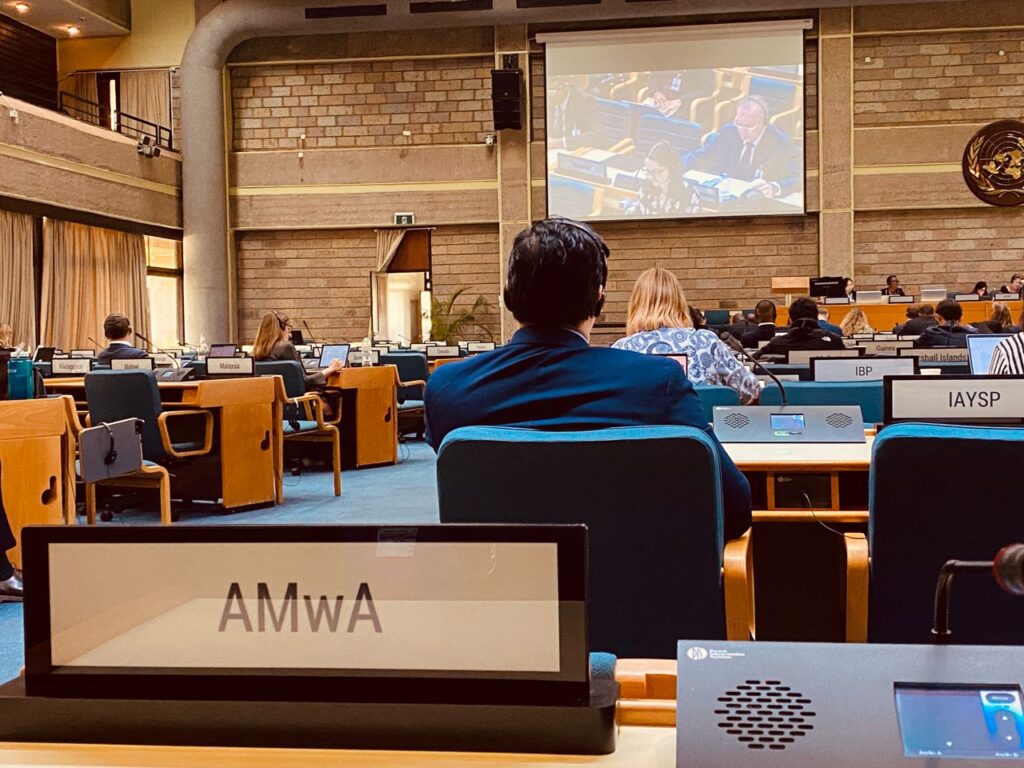
Women subsidise the global economy through unpaid care work and navigating poor service delivery. Reflecting an unequal system that extracts in the same way tax systems do so in service of an elite few. Whilst representation is seen as a form of progress, it remains insufficient. Women occupying space in policy making does not always […]
Pre-Nairobi UN Tax Committee Negotiations: civil society learning and engagement (part 1)
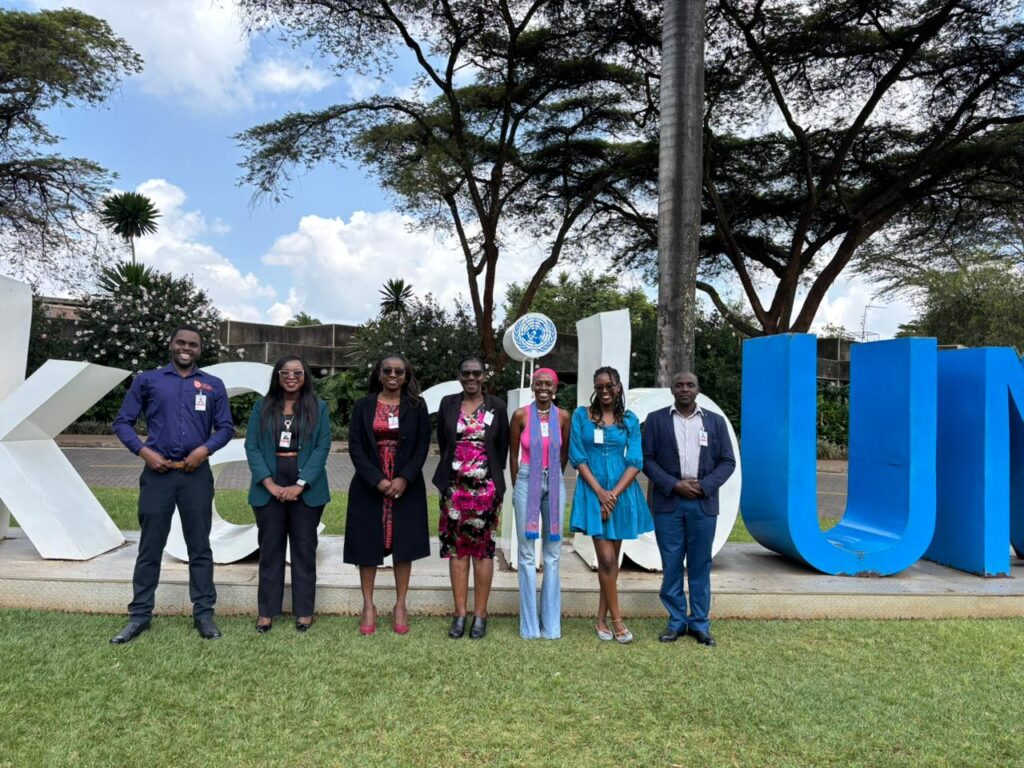
The African Tax Justice Network hosted a civil society engagement for Africans. Coming from different movements, countries and organisations, it became clear that the intention was to move beyond the divides and focus on the common agenda. I appreciated how tax justice advocacy can unfold differently at a regional level, compared to the global […]
A Meeting of Hearts and Minds: A Reflection Report on Movement Building in Kenya and Uganda
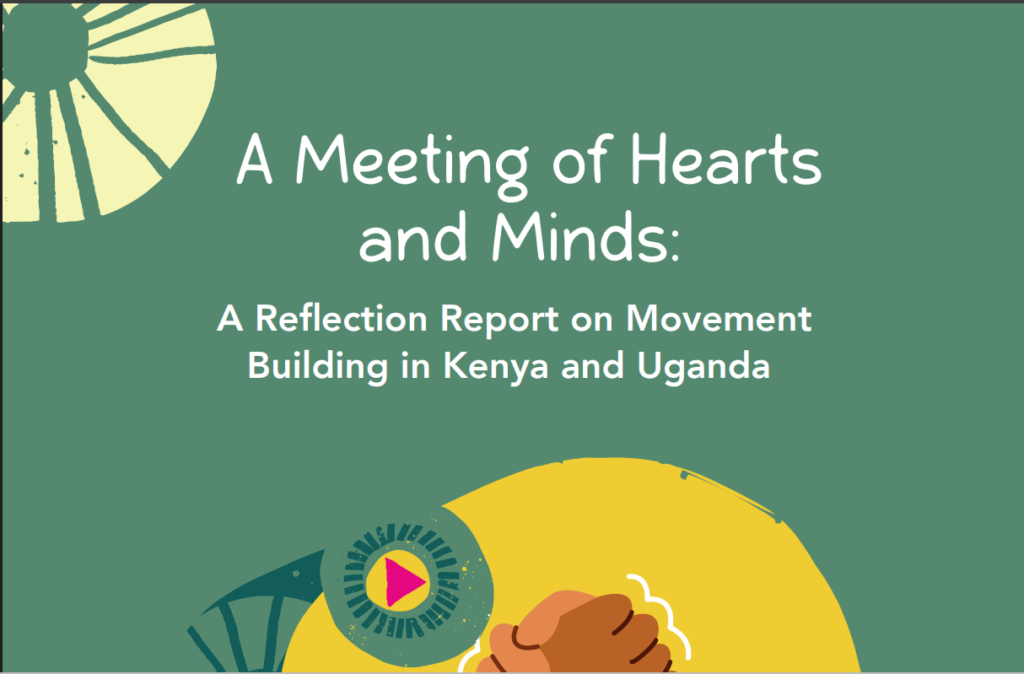
Across Nairobi and Kampala, African feminists gathered in powerful reflection spaces to re-examine what movement building means in a time of backlash, shrinking civic space, and persistent inequalities. These conversations—rooted in feminist and transformational leadership—brought together AWLI alumni, activists, and leaders committed to strengthening solidarity, deepening care, and reimagining leadership as a collective political journey. […]
Feminist Pathways Toward a Fairer Global Tax Order
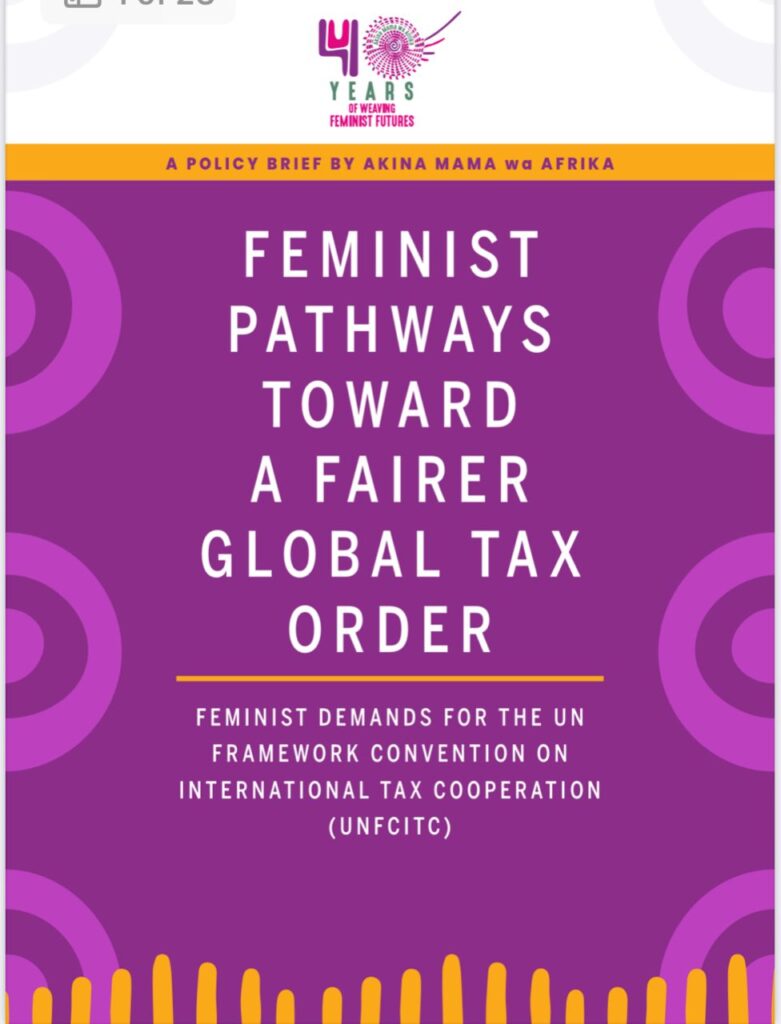
Feminist Demands for the UN Framework Convention on International Tax Cooperation (UNFCITC) Akina Mama wa Afrika is honoured to share a powerful new policy brief, Feminist Pathways Toward a Fairer Global Tax Order: Feminist Demands for the UN Framework Convention on International Tax Cooperation (UNFCITC), authored by Lyla Latif. This is an essential read for […]
How are we funding our own exploitation? The ultimate irony!
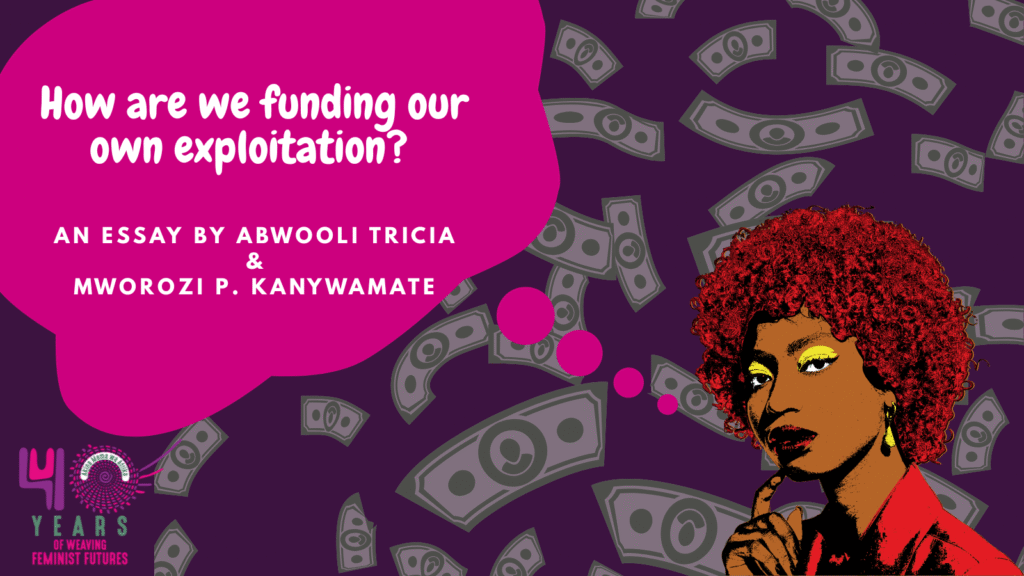
“Was that a bad financial decision, or are you just a poor person being priced out of basic human pleasures?” – Ziziian A Silent Violence In the words of President Franklin D. Roosevelt, citing the late Justice Oliver Wendell Holmes, Jr., “Taxes are the price we pay for a civilized society.” The quote, like many […]
Advancing Reparative Justice for African Women and Girls: Reflections from the 7th GIMAC Coordination Meeting with RECs
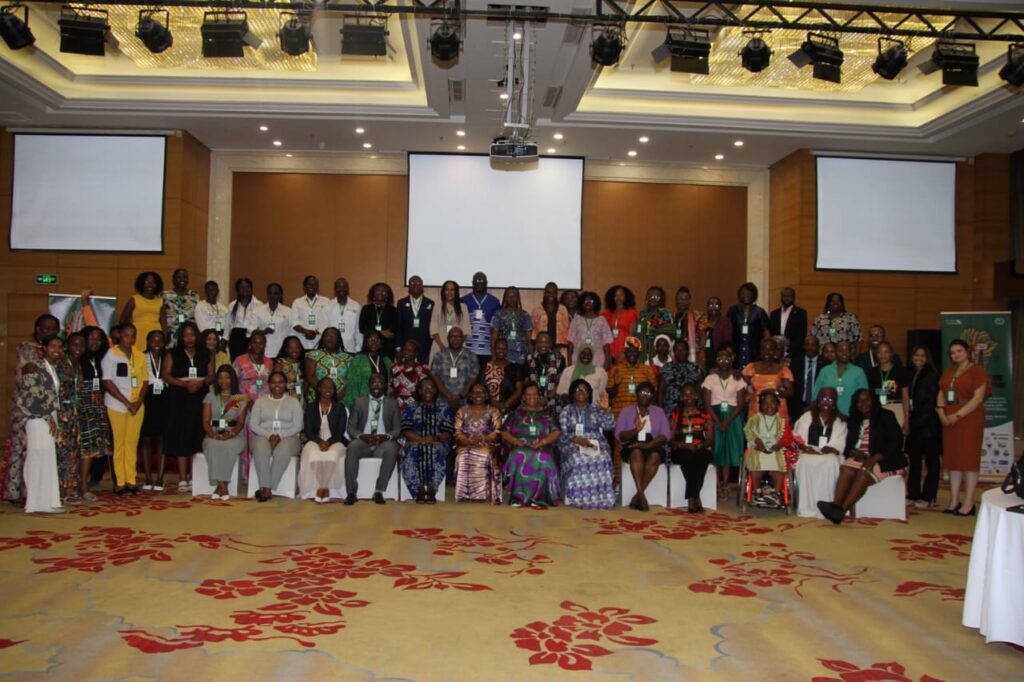
From 7th to 9th July 2025, Akina Mama wa Afrika (AMwA) was honoured to be part of the 7th Gender is My Agenda Campaign (GIMAC) Coordination Meeting with the Regional Economic Communities (RECs), alongside the 14th GIMAC Young Women Advocacy Training. The convening took place in Malabo, Equatorial Guinea, on the margins of the 7th […]
Call for Applications: External Audit Firm for AMwA’s 2025 Financial Year
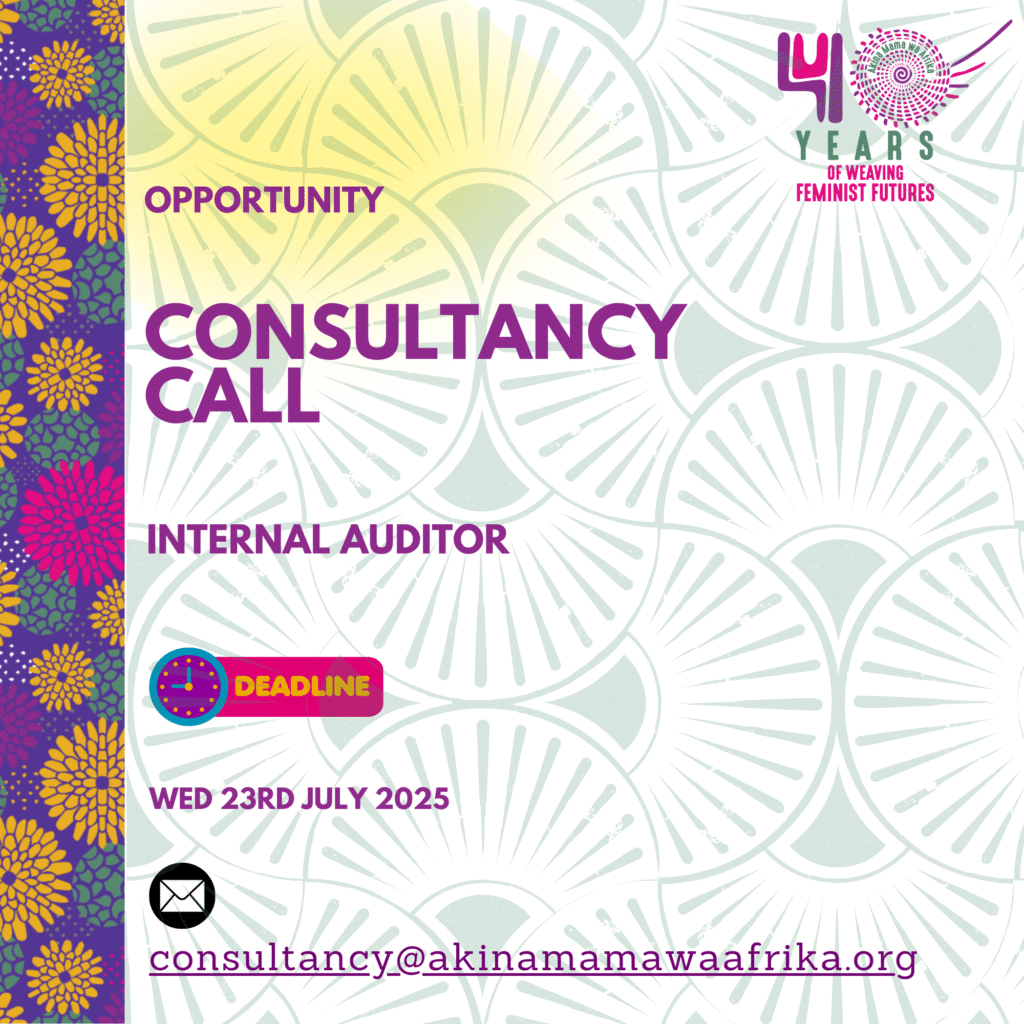
Akina Mama wa Afrika (AMwA) is inviting proposals from qualified and experienced audit firms to support our ongoing commitment to financial integrity, accountability, and robust internal governance for the financial year 2025—with the possibility of extending the engagement for two additional years. This partnership will involve conducting an independent audit, strengthening internal controls, and enhancing […]
GET BACK THE HONEY! AFRICAN FEMINIST ESSAYS ON DECOLONISATION, NEOLIBERALISM & CAPITALISM
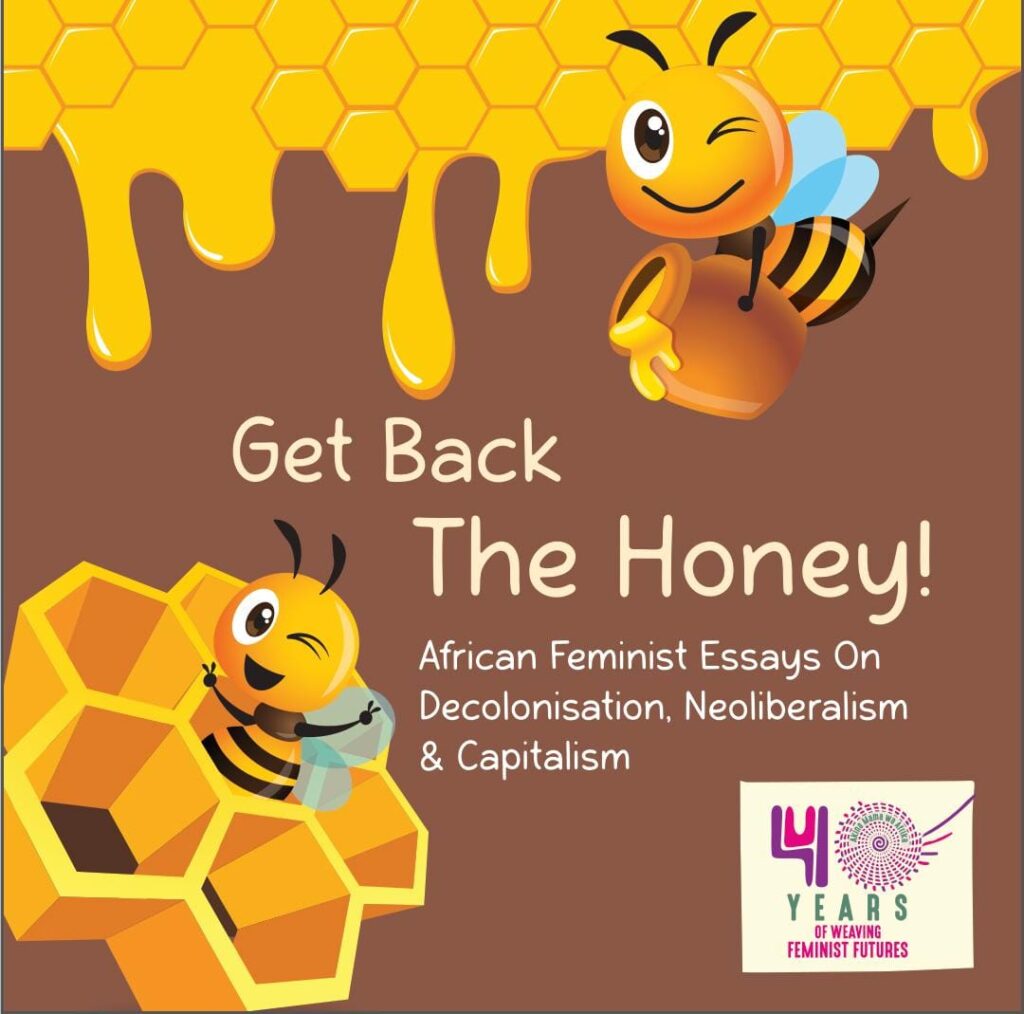
This anthology offers an in-depth analysis of Nyuki, a political comic published by Akina Mama wa Afrika. Nyuki—Swahili for “bee”—is a powerful allegory that follows the lives of bees, symbolising collective labour, resilience, and communal strength. The comic explores the enduring legacies of colonialism, imperialism, and patriarchy through striking visuals and rich symbolism, revealing […]
New names, New Faces | A poem by Hawa N. Kimbugwe

Silence drips from rafters like rain in deserted houses It coats tongues, thick and still They have seen what happens To those who speak with open throats and full chests To those whose words rattle the air like broken chains Some sit in shadows, not by choice Light has burned them before […]
Manufactured Misery: How Neoliberalism Engineers Poverty in Africa
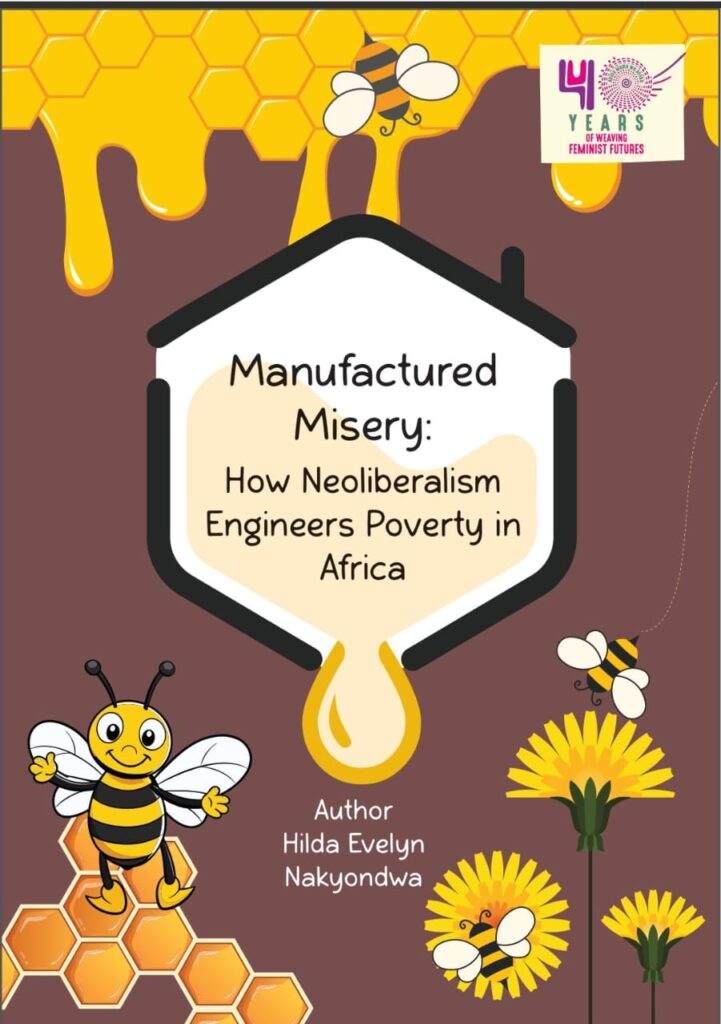
What if we told you that scarcity isn’t natural, but designed? In her striking essay Manufactured Misery, Hilda Evelyn Nakyondwa breaks down how neoliberal economic policies—often pushed by institutions like the IMF and World Bank—don’t just fail Africa, but actively deepen its poverty. Drawing from the allegorical comic Nyuki: The Bee Story, she shows how […]
Land Dispossession as a Tool of Capitalism
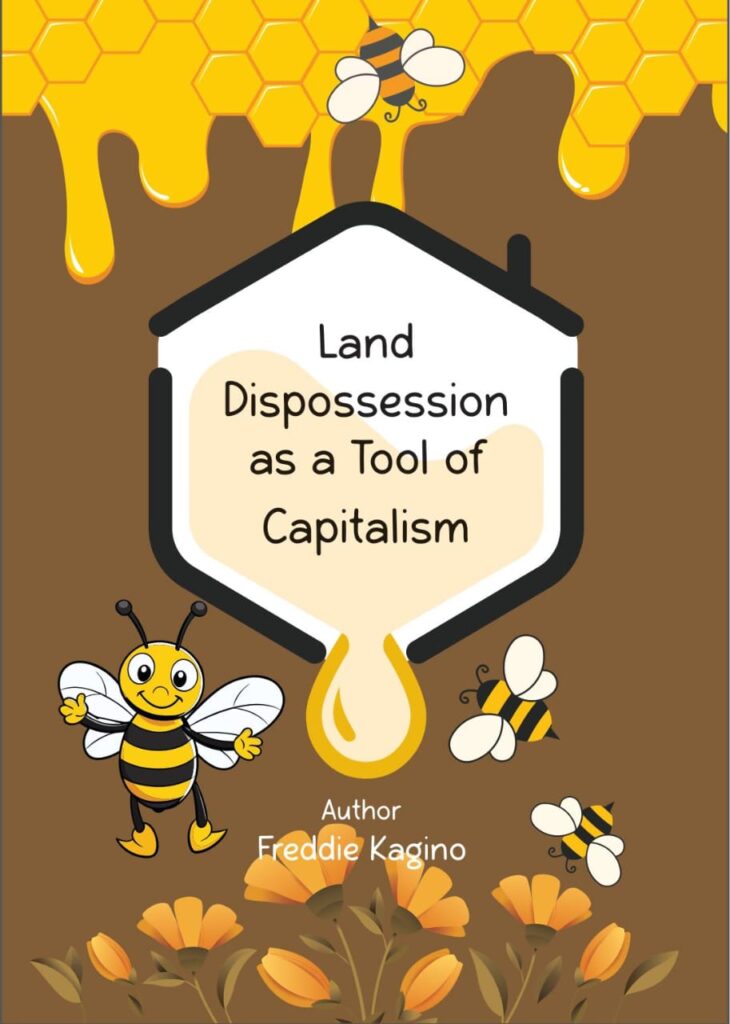
In Land Dispossession as a Tool of Capitalism, Freddie Kagino unpacks one of the most violent and enduring legacies of colonialism: the theft of Indigenous land. Using “NYUKI: The Bee Story” as an allegorical lens, Kagino draws sharp parallels between the betrayal of the bees by the hive beetles and the historical reality of European colonisers […]
The Glorification of Work in Capitalist Economies
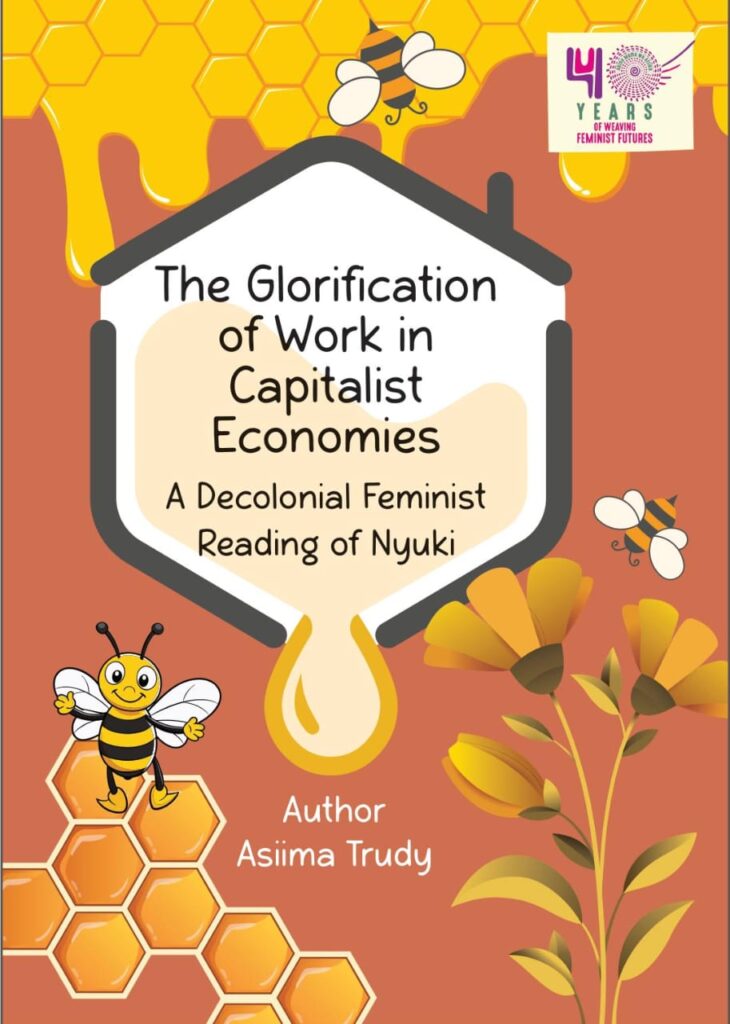
A Decolonial Feminist Reading of Nyuki In her essay The Glorification of Work in Capitalist Economies: A Decolonial Feminist Reading of Nyuki, Trudy Asiima peels back the shiny facade of capitalism to reveal its brutal core. From the sleep-deprived street vendor to the office worker trapped in a cycle of pointless meetings, Asiima shows how […]
Letter to Nyuki from Post-Colonial Aethina
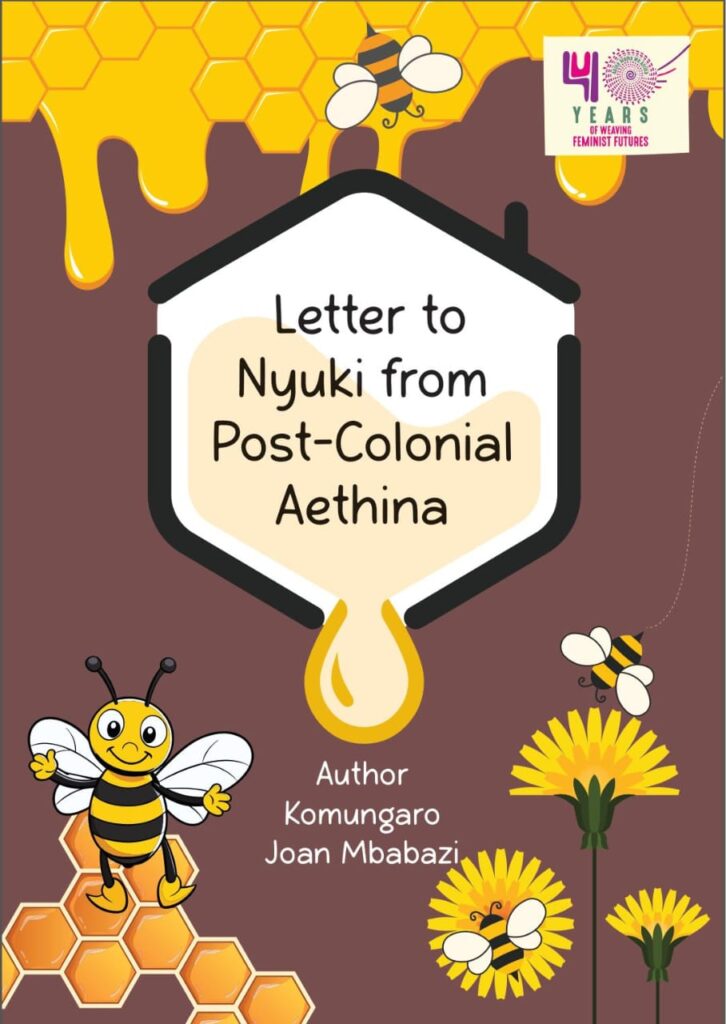
In a searing essay titled ” Letter to Nyuki from Post-Colonial Aethina,” Komungaro Mbabazi delves deep into the world of NYUKI: The Bee Story to reveal the grim realities of Africa’s post-independence condition. The prison metaphor is clear and piercing: we are inmates of a system designed to exploit us, with our leaders acting as prison guards, […]
Debt and Deception: A System Built to Owe
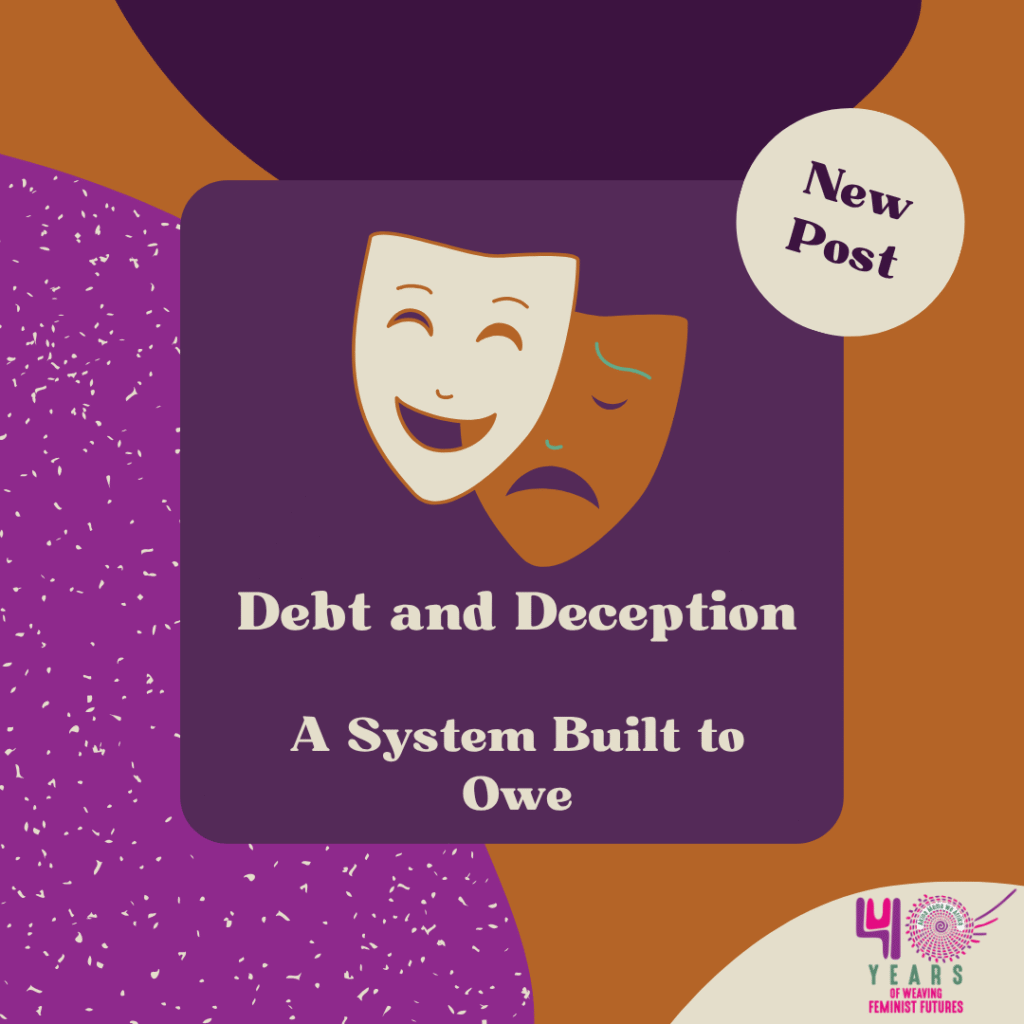
In 2025, as debt crises engulf the Global South, calls for justice—not charity—grow louder. This powerful blog unpacks the colonial roots of global debt, challenges creditor-driven narratives, and uplifts African feminist voices demanding a UN Sovereign Debt Convention rooted in dignity, sovereignty, and repair—not repayment.
Letters from Nairobi weaved with Love and Solidarity
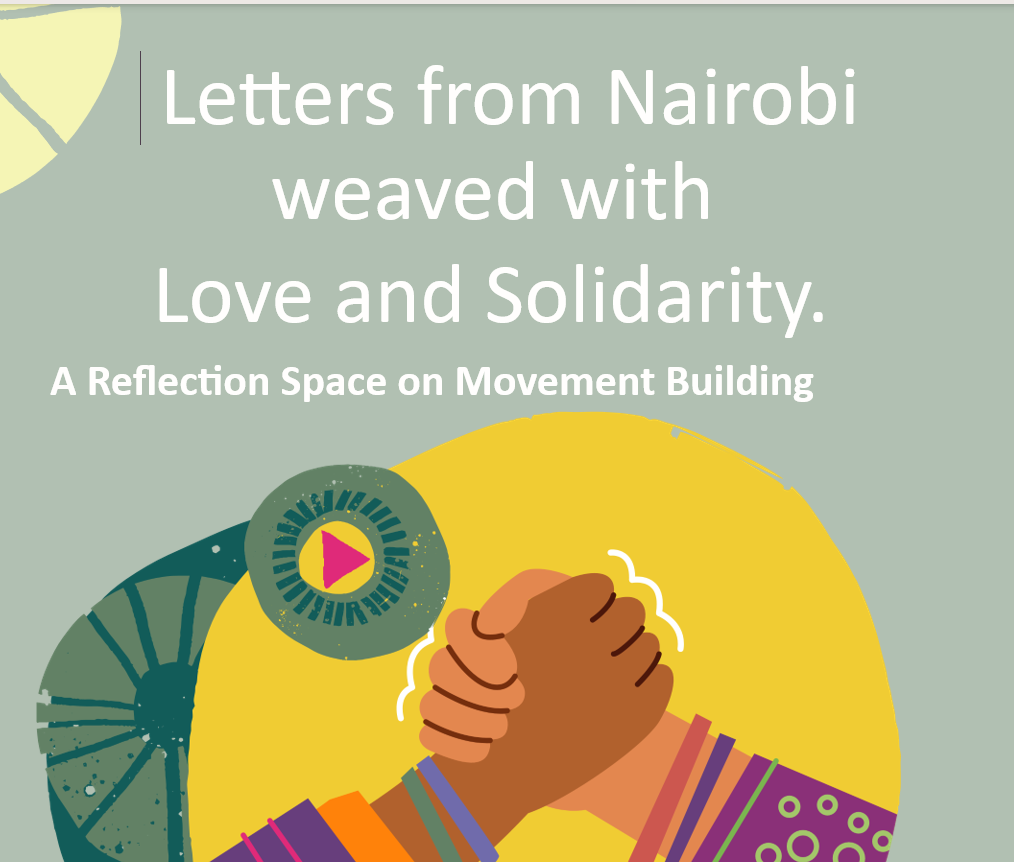
A Reflection Space on Movement Building What does building a movement rooted in love, resistance, and radical imagination mean? In Letters from Nairobi Weaved with Love and Solidarity, we invite you into a living archive, a reflection space where memory meets momentum and the story of Akina Mama wa Afrika continues to unfold. This isn’t […]
Our Liberation Is Not A Poetic Ideal
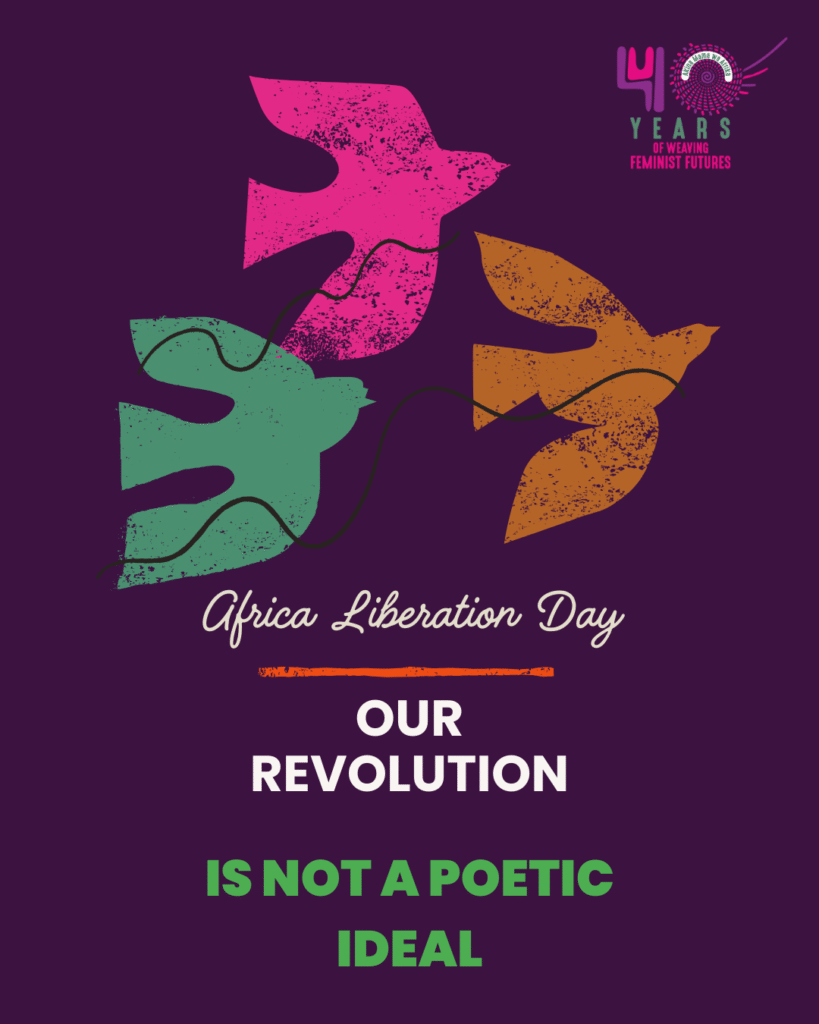
Our liberation is not a poetic ideal — it is not a spectacle, a slogan, or a national holiday performance. In this powerful reflection inspired by Thomas Sankara, Precious Tricia Abwooli critiques the aestheticization of African liberation, challenging the symbolic independence celebrated through parades, flags, and speeches. Instead, she calls for a return to the revolutionary roots of justice, healing, and everyday transformation. This piece interrogates the gap between symbolic freedom and lived realities under neocolonial systems, urging us to reclaim liberation as a radical, embodied, and collective struggle
5 Ways the “Pan-African Family Values” Conference Threatens African Liberation and Dignity

A new wave of neocolonialism cloaked in Pan-Africanism is unfolding in Nairobi. This exposé unmasks the far-right evangelical agenda behind the Pan-African Family Values Conference and its dangerous efforts to rewrite African history, erase diverse family structures, attack gender minorities, and undermine women’s autonomy—all while exploiting the continent’s resources.
Advancing Climate Justice, Human Rights, and Economic Equity in Tanzania
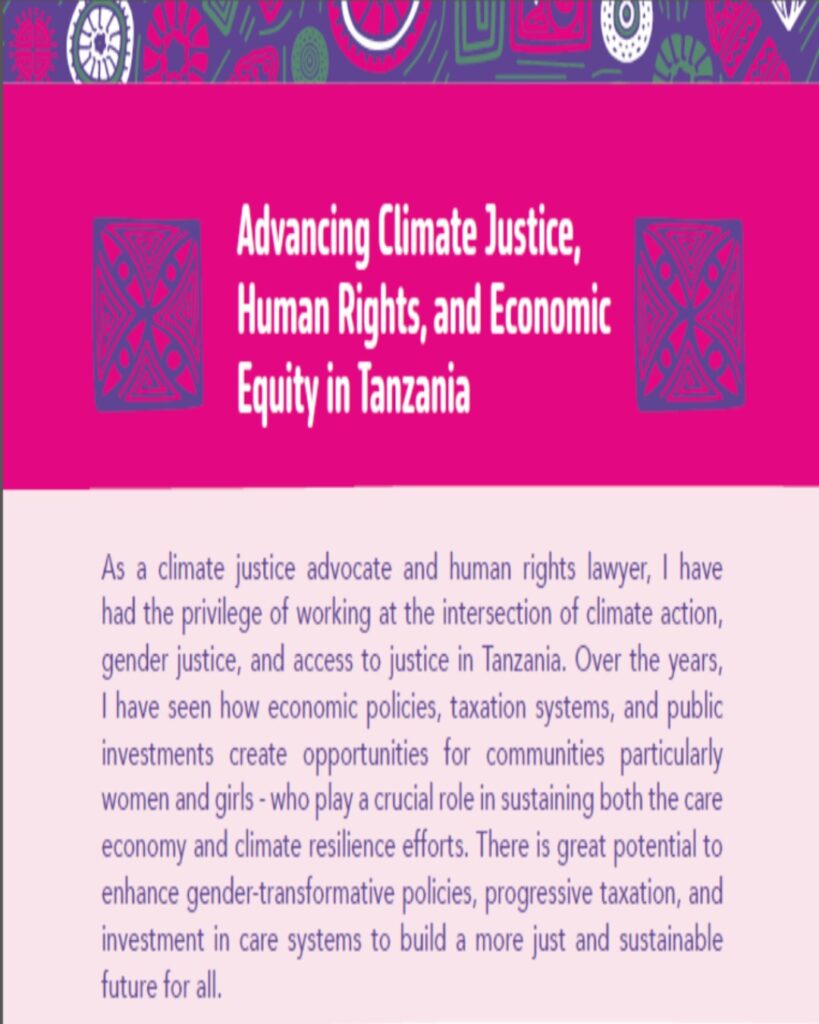
Climate resilience, gender equality, and economic development are powerfully interconnected, in Tanzania and around the world. In her insightful article, human rights lawyer and climate justice advocate Maria Matui explores how progressive taxation, investment in care systems, and gender-transformative policies can drive inclusive and sustainable growth.
The Unpaid Workforce: Why Women’s Labour Keeps the World Spinning for Free
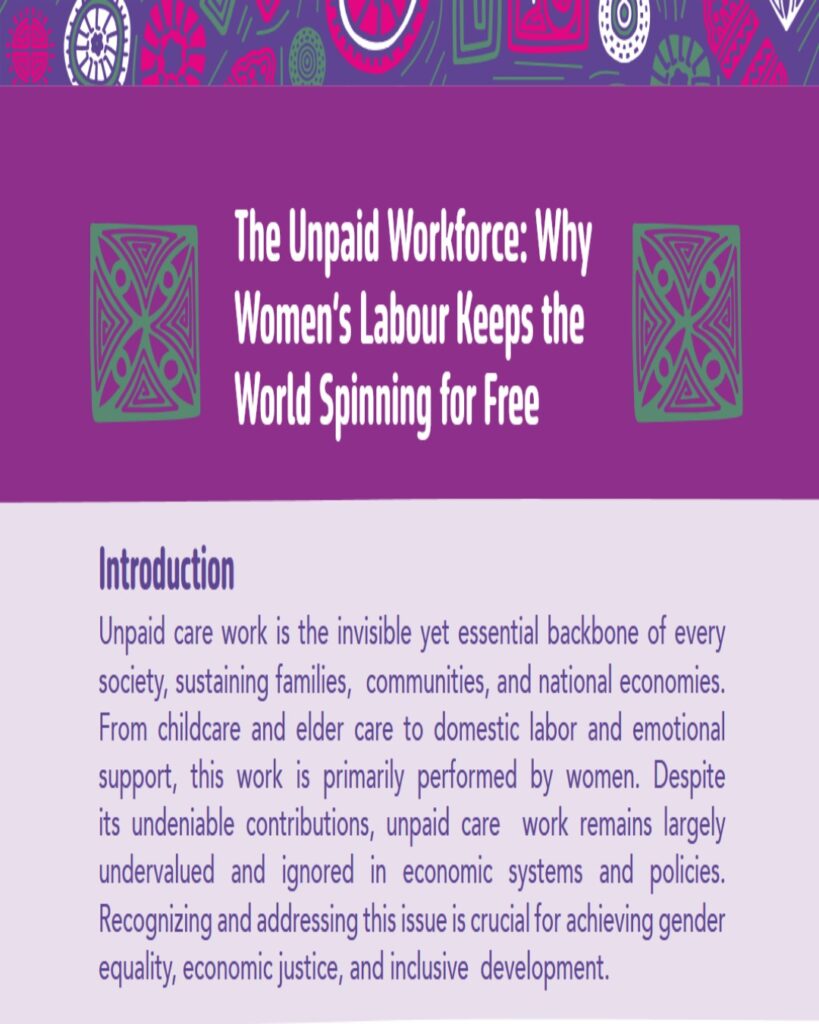
Unpaid care work, mostly done by women, is the hidden backbone of global economies. Learn why recognizing, valuing, and investing in unpaid care work is crucial for achieving gender equality, economic justice, and sustainable development.
Advancing Climate Justice, Human Rights, and Economic Equity in Tanzania
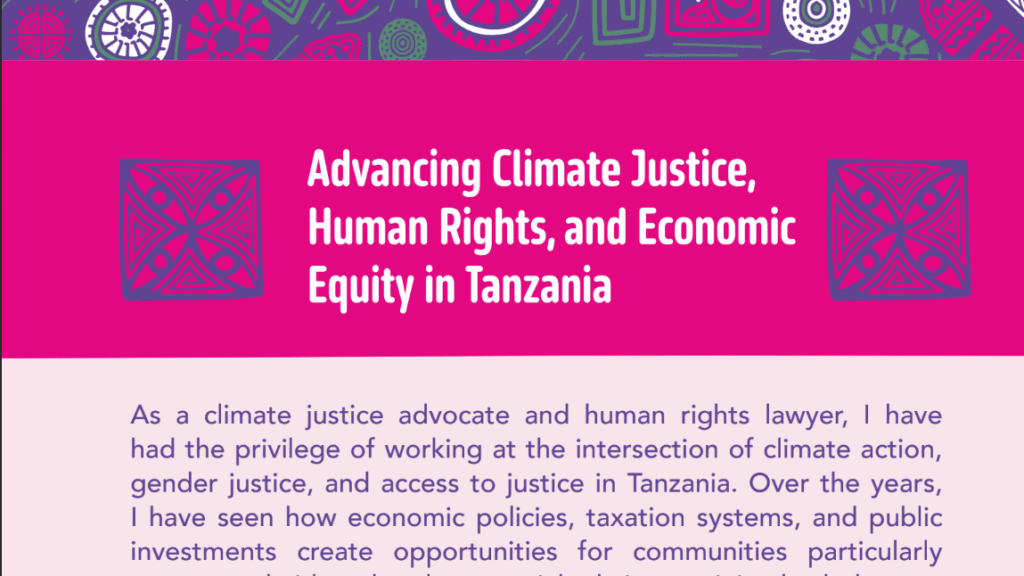
As Tanzania stands at a critical crossroads of climate resilience, gender equality, and economic development, there is a growing opportunity to forge a more inclusive and sustainable future. In her latest piece, Maria Matui highlights how investing in public care systems, recognising unpaid care work, and adopting progressive taxation can drive transformative change. With a […]